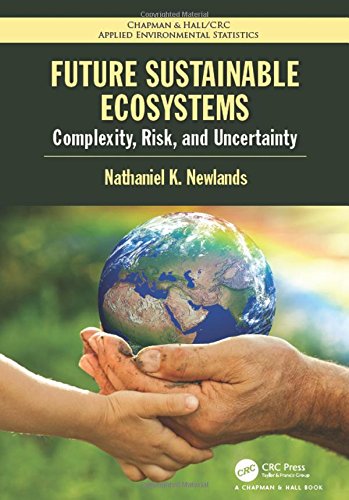

Most ebook files are in PDF format, so you can easily read them using various software such as Foxit Reader or directly on the Google Chrome browser.
Some ebook files are released by publishers in other formats such as .awz, .mobi, .epub, .fb2, etc. You may need to install specific software to read these formats on mobile/PC, such as Calibre.
Please read the tutorial at this link: https://ebookbell.com/faq
We offer FREE conversion to the popular formats you request; however, this may take some time. Therefore, right after payment, please email us, and we will try to provide the service as quickly as possible.
For some exceptional file formats or broken links (if any), please refrain from opening any disputes. Instead, email us first, and we will try to assist within a maximum of 6 hours.
EbookBell Team

4.7
36 reviewsFuture Sustainable Ecosystems: Complexity, Risk, Uncertainty provides an interdisciplinary, integrative overview of environmental problem-solving using statistics. It shows how statistics can be used to solve diverse environmental and socio-economic problems involving food, water, energy scarcity, and climate change risks. It synthesizes interdisciplinary theory, concepts, definitions, models and findings involved incomplex global sustainability problem-solving, making it an essential guide and reference. It includes real-world examples and applications making the book accessible to a broader interdisciplinary readership.
Discussions include a broad, integrated perspective on sustainability, integrated risk, multi-scale changes and impacts taking place within ecosystems worldwide. State-of-the-art statistical techniques, including Bayesian hierarchical, spatio-temporal, agent-based and game-theoretic approaches are explored. The author then focuses on the real-world integration of observational and experimental data and its use within statistical models.
The book clarifies how complex adaptive systems theory frames sustainability as a probabilistic (i.e., stochastic) problem, highlighting the importance of adaptive policy, science and institutional arrangements, for strengthening ecosystem adaptation and resilience. The author elucidates how we must transform our thinking, illuminating the benefits and opportunities offered by the integrative risk approach to innovation and learning in the Cognitive/Risk Era. The book highlights the importance of statistics in guiding, designing and delivering real-world solutions and helping to unravel the complex array of tradeoffs, uncertainties, inter-dependencies and unforeseen risks.